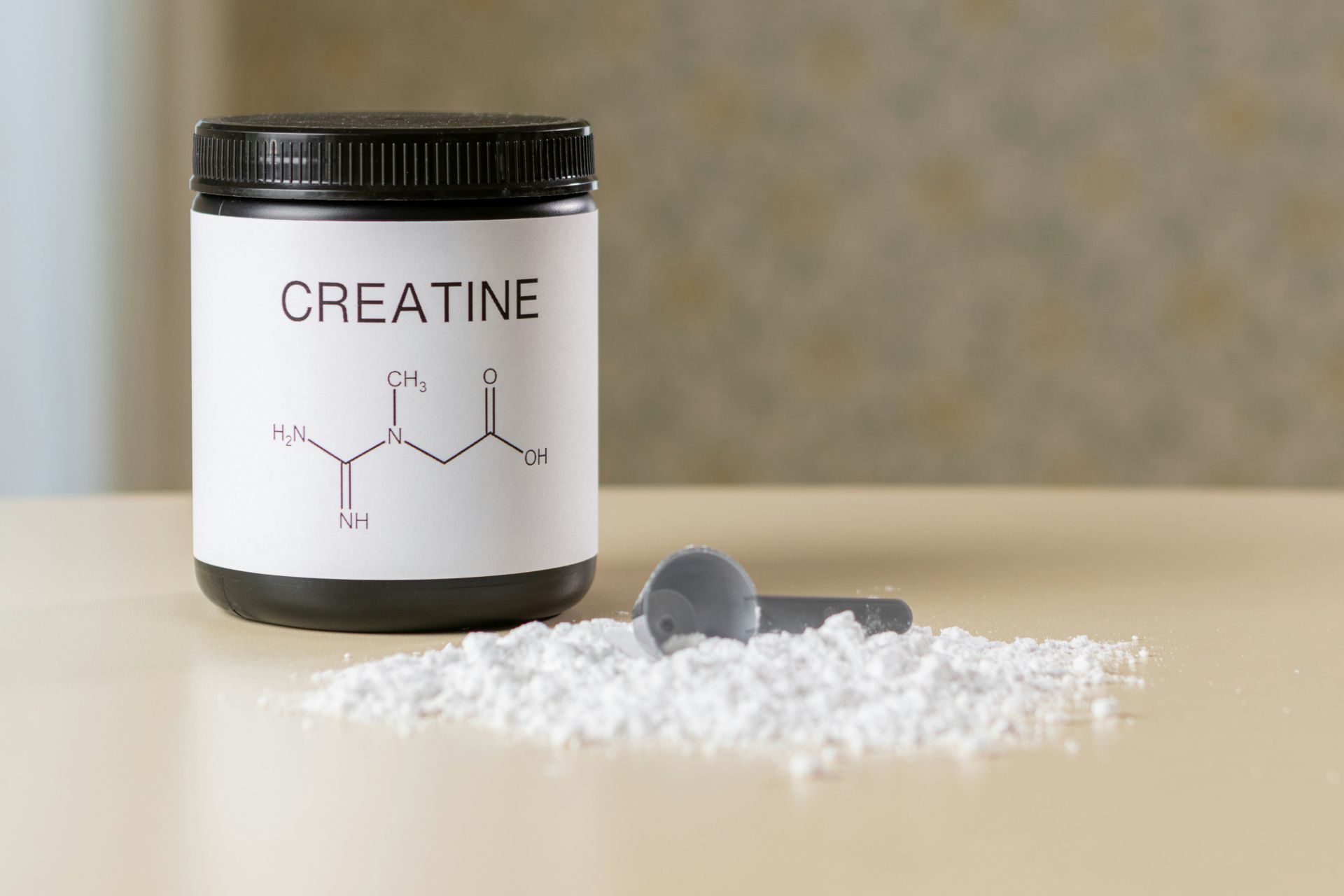24.07.2024
Creatine

What is creatine?
Creatine is a substance that is naturally created in the human body, it is synthesized in the liver, kidneys and pancreas. In nature it can be found and consumed through meat and fish. Our body stores creatine in the form of phosphocreatine in our muscles and uses it for energy. The main role of creatine is to be used in our body as chemical energy (ATP – adenosine triphosphate) primarily for explosive movements.
Consuming creatine helps the renewal of ATP energy, gives greater strength to the muscles and better endurance. Creatine which is ingested into the body is mainly stored in the muscles (98%), and the rest (2%) is stored in the brain, heart and other organs.
Creatine as a supplement:
Creatine is one of the most popular sports supplements in the world. It’s attractive because it can help grow muscle tissue and enhance athletic performance, specifically in intense exercise which requires explosive movement (jumping, lifting weights…).
Research shows that creatine supplementation has the highest effect in those who consume it the least through meat or fish, like vegetarians or vegans. Creatine supplementation has the lowest effect in those who naturally synthesize large amounts of creatine in their bodies.
Other positive aspects of creatine which are suggested by research include:
- Injury prevention: supplementation can prevent dehydration, muscle cramps and injury of muscle, ligaments or nerves.
- Cognitive benefits: creatine supplementation can help improve cognitive performance, especially in older adults.
- Bone health: creatine supplementation can help improve the deterioration of skeletal muscles and mineral density of bones related to aging.
- Skin health: research suggests that using ointments with creatine can help with skin aging, wrinkles and sun damaged skin.
Is creatine safe?
Even though creatine is one of the most researched supplements in the world, questions and fears about the safety of its use persist. Many myths have lasted over time about the side effects of creatine use.
Does creatine lead to water retention?
While evidence exists that creatine supplementation leads to water retention, mainly intracellularly, in the short term, other research suggests that this doesn’t have a significant impact on the complete levels of water in the body, in relation to muscle mass, over longer periods of time. So, creatine supplementation most probably doesn’t lead to significant water retention.
Is creatine an anabolic steroid?
Because of the physical and performance enhancing similarities they might seem alike, but creatine and steroids have completely different chemical properties and mechanisms of operating, as well as legal status. Creatine is not a steroid.
Does creatine cause kidney damage?
More than 20 years of research suggests that creatine supplementation in the recommended doses doesn’t cause negative effects to kidney health.
Does creatine cause hair loss?
Research doesn’t show a significant increase in testosterone or hair loss caused by creatine supplementation.
Does creatine lead to dehydration and muscle cramps?
This assumption is connected to the idea that creatine causes water retention. Experimental and clinical research doesn’t support the idea that creatine supplementation causes dehydration or muscle cramps.
Is creatine safe for children and adolescents?
There is a limited amount of research and data on this topic, but existing research suggests that creatine supplementation is safe and potentially beneficial for children and adolescents.
Does creatine lead to fat gain?
Research shows that creatine supplementation doesn’t lead to fat gain. An increase in lean muscle mass could cause such an illusion because of the gain of weight.
As with every dietary supplement it’s important to use a product which follows adequate production protocol. It is necessary to consume the recommended amount in the recommended way. If you are pregnant, have diabetes, or problems with your kidneys or liver consult with a medical practitioner before starting creatine supplementation because of lack of research on the influence of creatine in these cases.
Antonio, J., Candow, D. G., Forbes, S. C., Gualano, B., Jagim, A. R., Kreider, R. B., Rawson, E. S., Smith-Ryan, A. E., VanDusseldorp, T. A., Willoughby, D. S., & Ziegenfuss, T. N. (2021). Common questions and misconceptions about creatine supplementation: what does the scientific evidence really show? Journal of the International Society of Sports Nutrition, 18(1). https://doi.org/10.1186/s12970-021-00412-w
Creatine. (2023, December 13). Mayo Clinic. https://www.mayoclinic.org/drugs-supplements-creatine/art-20347591
Professional, C. C. M. (n.d.). Creatine. Cleveland Clinic. https://my.clevelandclinic.org/health/treatments/17674-creatine
*This text is intended for informational purposes only. If you experience any symptoms, it is recommended that you seek advice from your doctor or a qualified healthcare professional.*
*Image taken from https://unsplash.com/photos/a-bottle-of-creatine-next-to-a-spoon-on-a-table-e333ulMOZ_o*
Your trusted partner in finding medical information. We offer access to reliable resources and make it simple for you to get in touch with qualified medical service providers. Our goal is to assist you in achieving optimal health through dependable information and ongoing support, whether it's advice, a physical examination, or expert consultation.